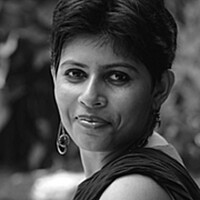Percy Julian Google Doodle: Why aren't there more black scientists?
Born in Jim Crow-era Alabama, Percy Lavon Julian beat the odds to becoming a pioneer in the field of medicinal plants. To honor him on his 115th birthday, a Google Doodle features a version of him in his element.
Even today, people like Dr. Julian are a rarity. Why aren't there more black scientists in America?
"The answer turns out to be a complex equation of self-doubt, stereotypes, discouragement and economics – and sometimes just wrong perceptions of what math and science are all about," notes a 2011 Associated Press article.
According to the National Center for Education Statistics, blacks make up 15 percent of all college students, but in 2009, black students obtained just seven percent, four percent, and two percent of the country's STEM bachelor's degrees, master’s degrees and PhDs respectively. Overall, blacks make up 13.1 percent of the US population
A report titled "Disparities in STEM Employment by Sex, Race, and Hispanic Origin" published last year states that only six percent of STEM workers were black in 2011 – up from 2 percent in 1970.
In fact, African Americans hold less than three percent of PhDs in biology, chemistry and engineering today, according to UNCF/Merck Science Initiative that aims to improve the representation of minority students in sciences and engineering.
And even if they have all those degrees under their belt, when it comes to funding, compared to their white counterparts tend to receive less funding.
A study titled "Race, Ethnicity, and NIH Research Awards" published in journal Science in 2011 states that black candidates are "13 percentage points less likely to receive NIH investigator-initiated research funding compared with whites."
“This situation is not acceptable,” said Dr. Francis S. Collins, the director of the National Institutes of Health (NIH) told The New York Times.
Back in 2011, when in an interview with Black Enterprise magazine, astrophysicist Neil deGrasse Tyson was asked if we are close to seeing more African Americans represented in the sciences. He said, "No" and elaborated on why science is not among the top career choices for black kids.
" [I]f you’re the first to go to college or the first to go to a selective school where there’s a high expectation of opportunity, is the first thing you’re thinking of, “Oh, let me study science?” No, you’re going to sort of build capital. You’re going to choose a job where income is guaranteed and high. So, the legal, the finance, the business school, the law school, medical school."
As for Julian, he faced far more resistance – including firebombings – than most of his white counterparts.
An example to many dreamers out there, "Percy Julian's greatest contribution to improving the status of the black man in America may have been serving as an inspiration," writes Peter Tyson, editor in chief of NOVA Online.






